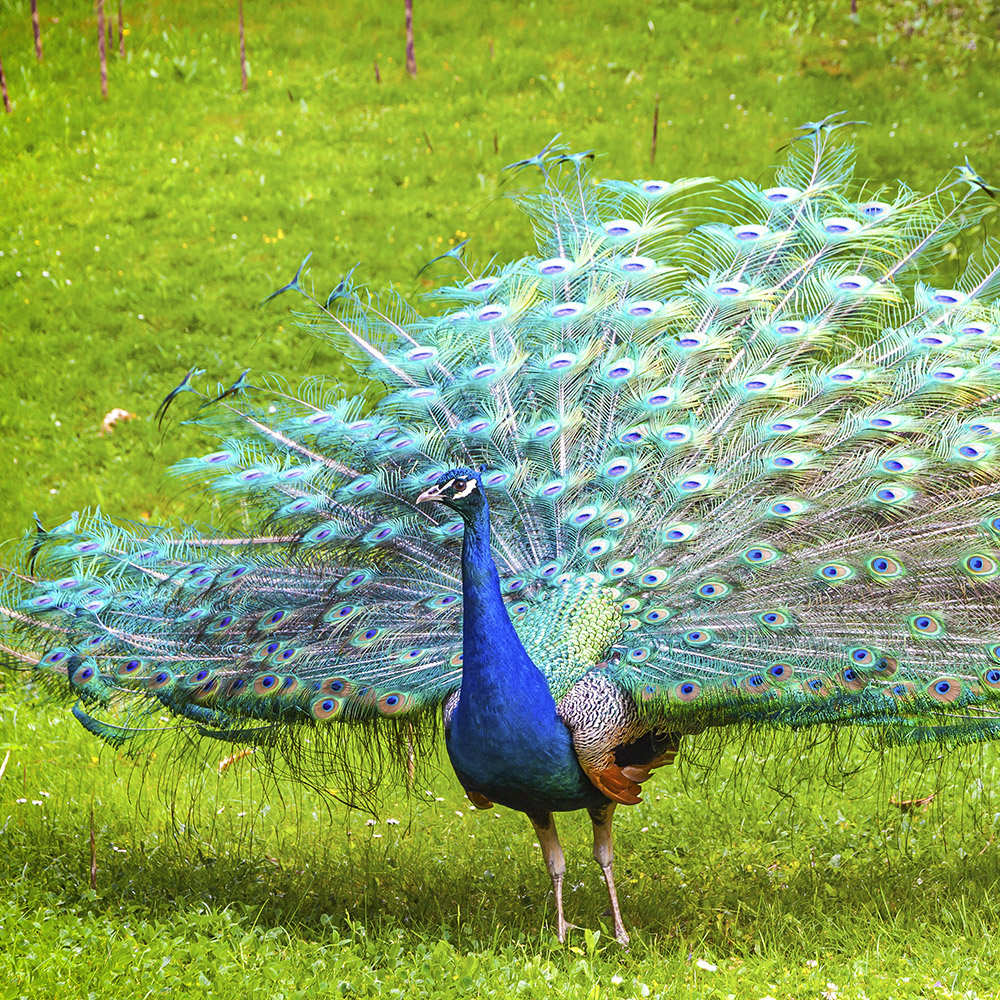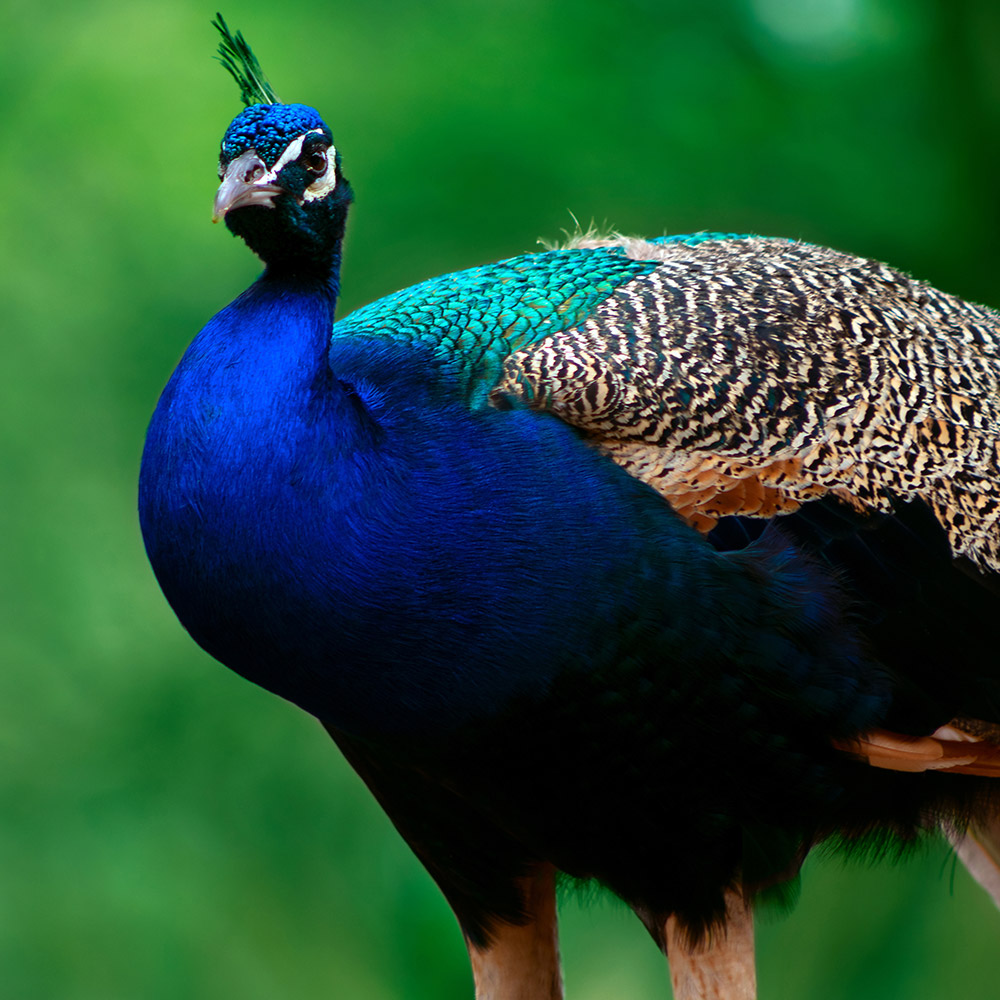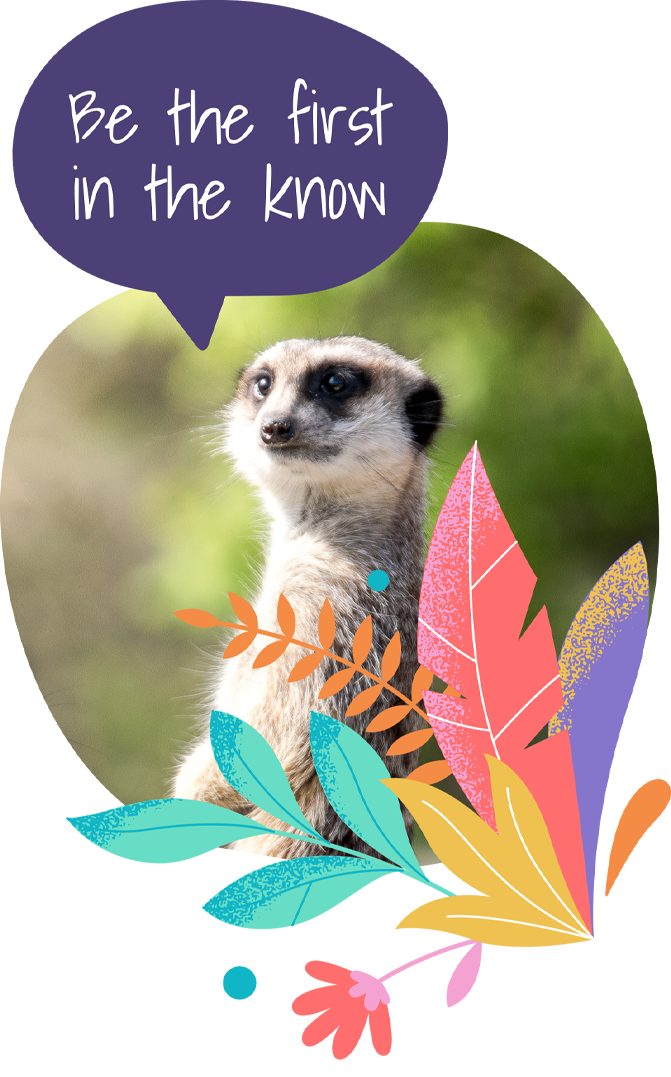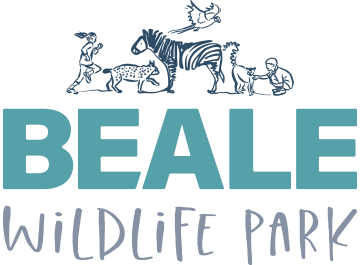Peafowl are ground feeding birds with moderately strong legs. Three strong toes face forwards and one backwards. While they nest on the ground, they prefer to roost in the trees. Their wing surface to bodyweight ratio is not large and they are incapable of long flights, but are able to glide.
Peafowl are one of the most colourful of all birds. The tail feathers of a male can grow to be five feet long. Each of these long tail feathers also has a design near its tip that looks like an eye. The female does not have the long, showy tail feathers. Her feathers are also less colourful. Both males and females have a crest of short feathers on the top of their heads.
Behaviour: They utter an unpleasant wailing cry, especially before rainfall. Peafowl can be quarrelsome and often do not mix well with other domestic animals. Peafowl go to roost early in tall trees, calling and bugling loudly as they move upward.

Diet
Peafowl are omnivores eating both plants and animals. In the wild, they feed mostly on insects but will also eat snakes. In India peafowl are both popular and useful in that they feed on young cobras.

Habitat
Peafowl are native to southern India and Sri Lanka. They mainly live in deciduous forests, cultivated lands and near villages. Many peafowl are also found around temples, due to their sacred status to Hindus and Buddhists. Due to their popularity as free roaming pets there are peafowl living in the wild around the world including the UK.
Fun Fact
The Blue (or Indian) Peafowl (Pavo cristatus) has been kept and reared in captivity for over 2000 years.
Lifespan
20 – 24 years.
More of our animals you may like to meet
Subscribe to our newsletter
Stay up to date with all that is happening at the park and receive exclusive offers and news.
You can unsubscribe at any time by clicking the link in the footer of our emails. For information about our privacy practices, please visit our website.
We use Mailchimp as our marketing platform. By clicking below to subscribe, you acknowledge that your information will be transferred to Mailchimp for processing. Learn more about Mailchimp's privacy practices


